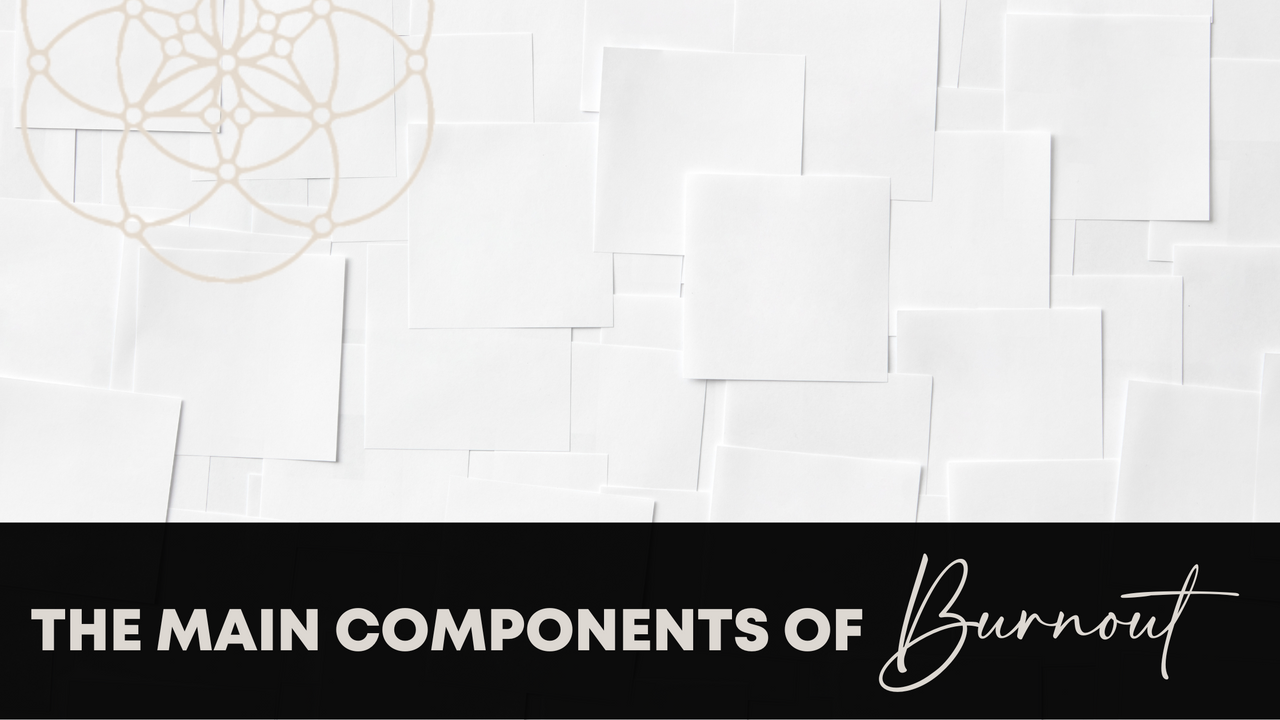The Main Components of Burnout
Aug 07, 2022
You open your eyes first thing in the morning and already dread the day ahead of you. You feel exhausted and wish you could spend the day in bed. You get up, get dressed and head out the door anyway. You get to work and feel annoyed with everything and everyone around you. You don’t care about your projects or the people you’re supposed to help. You don’t feel that what you do makes any difference to anything. You get to work anyway, but nothing that you do feels good enough. You feel sure that you’re failing and that everyone sees that you’re failing. You wish that you could have just stayed in bed today.
If any of the above feels familiar, you may be suffering from burnout.
Put simply, burnout is a feeling of pervasive exhaustion that can result from extended exposure to stress. People who are burned out report feeling physically, mentally, and emotionally exhausted, and are unable to find relief from this all-encompassing exhaustion. Driving this exhaustion are two main components which occur in parallel to one another – emotional and physical exhaustion.
Emotional Exhaustion
Emotional exhaustion usually feels like you are overextended. You’re feeling drained by interactions with other people; strained and chronically fatigued; a sense of deep and profound weariness that isn’t relieved by sleep. If you notice that you are asking yourself “What now?” every time someone approaches you, you might be experiencing emotional exhaustion.
What’s happening physiologically is a polyvagal stress response, which is very similar to a trauma response. This response typically has two outcomes – a sympathetic response, which triggers your “fight or flight,” and a parasympathetic response, which triggers you to completely shut down.
Stress, especially prolonged exposure to stress (like you experience in burnout), reduces the capacity to control your emotions. This may manifest as emotional instability, intense emotional reactions, feeling overwhelmed by your emotions, feeling frustrated and angry, irritability, anxiety, panic, overreacting, feeling upset or sad without knowing why.
Physical Exhaustion
When you experience stress, your body reacts in ways that you can probably feel. You may feel specific physical sensations as your body recruits the energy and resources needed to respond to the stressor.
For example, if you’re crossing the street and see that a car isn’t going to be able to stop in time to avoid hitting you, you may feel energized, focused, and ready to take the action necessary to save your own life, notably running to safety. These sensations are due to your body releasing adrenaline into your bloodstream, your heart rate becoming elevated, your blood pressure increasing, and more oxygen getting to your brain.
These physiological responses to stress are extremely adaptive and beneficial, allowing you to quickly get to safety.
This stress response may also serve you well in situations that are not life-threatening but that may still require increased arousal and alertness. For example, if you have a job interview. Your body’s stress response may allow you to recruit the cognitive and energetic resources you need to remain alert throughout the process.
Exposure to long-term stress can create a negative feedback loop leading to symptoms such as headaches, intestinal problems, muscle tension, chest pain, fatigue, changes in sex drive, upset stomach, and vulnerability to disease. This can also lead to negative effects on the immune, cardiovascular, digestive, endocrine, and reproductive systems.
Both the emotional and physical responses to burnout run parallel to one another. Over time, these nerve responses become adaptogenic (meaning the body begins to normalize them), and cause a neurophysiological reaction (one that relates to both the brain and the body).
The vagal nerve is what regulates these responses – and 80% of the vagus nerve fibers carry information from the body to the brain. To put it simply, a majority of vagus nerves contribute to a normalization of your brain and body’s response to stress. So, when you’re under frequent stress and begin to develop a negative feedback loop, the body and brain begin to view this as your new normal. That is why it is so very important to listen to our body and honor its defense systems. Especially in times of chronic stress and burnout.
If you’re feeling burnt out, and are ready to take a deeper look at the root of the problem to finally overcome it once and for all – then you’re in the right place. I would love to talk more about how we can create a unique solution to help you overcome your burnout. If you’re interested in learning more, please click the link below.


